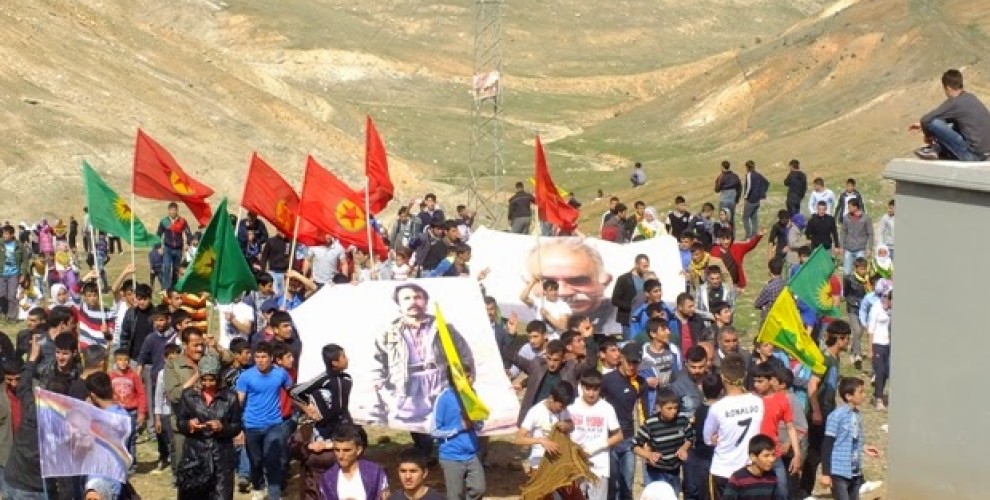Mahsum Korkmaz, Agit: The spirit of 15 August
PKK Commander Agit is said to have been buried at Newala Kasaba. Walking there makes history revive.
PKK Commander Agit is said to have been buried at Newala Kasaba. Walking there makes history revive.

Newala Kasaba, two words that Kurdish people have in their heads like if they had been carved in their minds. And indeed it is like that.
Newala Kasaba concentrates in itself perhaps most of what the dirty war against the Kurdish people is. Together with Kobane and Afrin as well as many other names…
Newala Kasaba is a wide hilly field, on the immediate outskirts of Siirt. It could be a garbage dump. And indeed you can find garbages there. But it takes to walk a few meters to understand that this land hides something more gruesome and horrific.
From underneath black bags, indeed like garbage bags, are coming to the surface. They contain no garbage though. Pieces of clothes are coming up revealing what is really hidden under this field. Bones are coming on the surface. The people of Siirt have known for a long time what these fields are hiding.
What truth has been buried here for never to come to light again, in the intentions of those who commited the horrible crime of abducting people, torturing them, kill ingthem and finally dumping their bodies as if they were rubbish.
Newala Kasaba is a huge mass grave, or rather a graveyard. But a graveyard where the horrors of the Turkish state forces' war against Kurds have been buried. Yet truth cannot be buried forever. And indeed those who have been buried there are struggling to come out, to remind everybody of the horrible, cruel crimes committed by the Turkish state.
It is said that over 100 bodies are buried in Newala Kasaba. Some say that could be even 200. Among these one of the founder of the PKK (Kurdistan Workers’ Party), Mahsum Korkmaz is said to have been buried. Indeed someone indicates the place where he could be resting: some fifty meters from the entrance to the site.
An old man, white hair and beard, tells the story of his ongoing tragedy. “My son was abducted by gendermes and taken to the gendarmerie post.
He was tortured for days and he finally died. We knew he had been taken into the gendarmerie post and we had been asking for him. We were told he was not there. Indeed we were told he never entered the door of the gendarmerie. Yet we knew he was there”.
Days passed and the old man could not get any answer. He did not lose hope to find his son, although as days passed he knew things were wrong, very wrong. “I finally learned that he had died because of torture. I went back to the gendarmerie to ask for his body. They told me once again that I was wrong, my son had never crossed that gate”.
Rumors had it since the end of the ’80s that in Newala Kasaba as well as rubbish, bags containing the remaining of the people killed by the notorious Jitem (a special body of the army) were thrown in the fields.
The reality of Newala Kasaba finally came to light and since the beginning of the ’90s relatives of disappeared people have been reclaiming their right to find their beloved.
But the magistrates don’t give permission to excavate the site. And so those who have been buried there have begun to come to the surface. It is emotionally very hard to walk along Newala Kasaba knowing that underneath so many people have been buried hurriedly and without respect. And it is precisely this that strikes: the Turkish state committed horrible crimes knowing that it would enjoy total impunity.
They murdered people knowing that they would never be held to account for it. But times are slowly changing. The civil society associations, with the help of the BDP (Peace and Democracy Party) have launched a strong initiative asking the government to open the mass graves (they are said to be over 200 for over 3000 people).
Mahsum Korkmaz, Agit, was the first commander of the PKK. He led the 15 August 1984 actions which started the Kurdish armed rebellion in North Kurdistan.
He lost his life on 28 March 1986, falling a martyr.